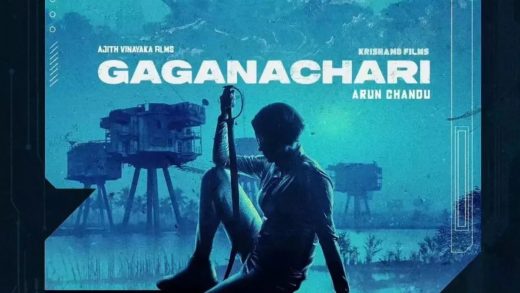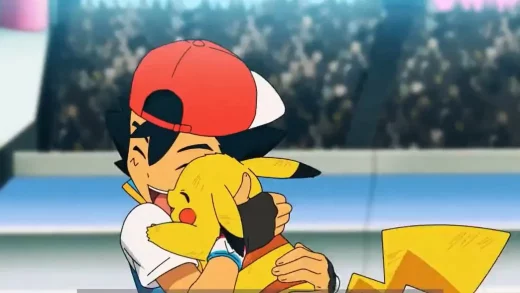:format(webp)/https://www.thestar.com/content/dam/thestar/entertainment/music/2023/04/21/grantis-a-former-guitarist-with-princes-3rdeyegirl-is-putting-her-music-to-work-for-the-planet-alongside-brian-enos-earthpercent-initiative/donna_grantis_culture_vs_policy.jpg)
It was initially a Prince of an idea.
Toronto’s Donna Grantis, the ace guitarist who was a member of the Minnesota wunderkind’s 3rdeyegirl band before his tragic death in 2016, said it was a question the iconic singer-songwriter posed while the band was in a Paisley Park studio that set her on the path to becoming a climate change activist.
“Prince walked in one day and he said, ‘What if we could use music to teach?’” Grantis recalled in a phone interview. “I wondered what he had in mind and that’s a question I’ve really been thinking about over the years.
“Now, in the midst of the greatest challenge in human history and arguably the most consequential decade in determining the quality of life on Earth for generations, his question has evolved into a call to action and has been resonating with me more than ever.”
On Friday — the day before Earth Day — Grantis’s call-to-action project, Culture vs Policy, released its first single, “A Drop in the Bucket.”
It’s a 10-minute-plus work that mixes the spoken words of Canadian environmental activist Tzeporah Berman with a guitar-dominated soundscape composed by Grantis; and the guitarist promises that plenty of similar collaborations will follow over the next six months.
If all goes according to plan, the song will be one of many that helps finance Brian Eno’s EarthPercent initiative, which asks songwriters to include the planet as a creative stakeholder in their tunes by pledging a percentage of royalties to the charity, which are then dispensed to companies working on the climate crisis.
“EarthPercent is inviting artists to credit the Earth with one per cent or more royalties,” Grantis explained. “If you think of one person, that amount can be pretty small. But collectively, since the revenue generated by music worldwide is in the tens of billions of dollars annually, one per cent of that is a tremendous amount of money. “
So far, artists ranging from Peter Gabriel and ex-R.E.M. frontman Michael Stipe to U.K. synthpop band Hot Chip and Toronto’s own Holy F–k have committed to the cause.
As for the money — Eno, the legendary producer, ambient music pioneer and Roxy Music co-founder, is hoping to raise $100 million by 2030 — it will be distributed to environmental and climate justice organizations in five key areas, according to Grantis: greening music; supporting energy transition; climate justice; legal and policy change; and protecting and restoring nature.
While Prince might have planted the initial seed, Grantis said she was motivated on a number of fronts to become more of an activist.
“One perspective was from being a new parent: I have two gorgeous kids and a heightened sense of responsibility in ways that I can contribute to climate action. I’ve always been interested in environmental issues, but for so many years I totally immersed myself in all things music and all things guitar,” she said.
“But during the pandemic, it was really a moment of pause for me. And that’s when I really started to dive into learning about the climate crisis.”
Grantis read books, listened to podcasts and watched documentaries, and participated in webinars and other programs, which led her to a deeper understanding of the urgency of the issue.
When she read the Christiana Figueres and Tom Rivett-Carnac book “The Future We Choose: The Stubborn Optimist’s Guide to the Climate Crisis” from cover-to-cover thrice, Grantis began formulating her musical approach.
“What would music sound like if I collaborated with scientists and Indigenous leaders and activists to amplify their message?” she asked herself.
“What I’m aiming to do is have conversations with collaborators and, out of those conversations, sample some direct quotes that either really resonate with me or speak to some of the main issues I’m interested in shining a light on, like how we consider human impacts on the planet and the idea of the interconnection of all things.
“The music will totally be written in response to the words.”
Once she’s gathered enough material, Grantis intends to tour “with visuals and collaborators” as well.
“Music is something that brings people from all demographics together,” she said. “To really feel something — whether it’s joy, comfort or belonging — it’s a unifying force. There’s tremendous potential to accelerate climate solutions by influencing the way people understand and act in relation to human impact on the planet, and I think art and music can help spark this potentiality.
“Arts and activism have been powerfully connected for decades. Joni Mitchell helped launched Greenpeace in the ’70s with a concert. My favourite bands like Rage Against the Machine and Pearl Jam have been doing it for decades, and I keep going back to what Prince said.”
Grantis, a McGill University graduate, connected with Eno after discovering his classic 1978 album “Ambient 1: Music for Airports” and recreating the 16-minute track “1/1.”
“I made a solo guitar arrangement of that song with reverb and delay, and I posted it on Instagram,” Grantis said.
A few hours later, an EarthPercent representative reached out to her, which led Grantis to form a friendship with Eno that culminated in a Zoom chat with him and New York Times music critic Jon Pareles about the cause.
Picking up the guitar at the age of 13, Grantis, who was raised in Mississauga, pretty much “lived and breathed the instrument” to the point she was awarded a scholarship to McGill.
“I really wanted to go there because I thought the Montreal Jazz Festival was really cool,” she chuckled. “It was a great place to learn and I studied jazz there.”
Why jazz?
“I love that it’s an improvisational art form and that blues is the foundation of it,” she said. “I just love the blues and improvising and, thinking about ‘A Drop in the Bucket,’ the blues is very much based off of that call-and-response relationship between the lead singer and the guitar player.”
Circling back to Prince — Friday marked seven years since his death — Grantis still thinks of the musical genius often and contemplates how to best contribute to his legacy.
She thinks Culture vs Policy is a good first step.
“I really do want the focus to be on what an incredible mentor he was and what an inspiration he was,” she said. “He was such a creative force, inspiring and a real teacher musically, but also outside of music. He had an incredible sense of humour, and we’d play ping pong and joke around.
“We’d also have really long discussions about huge issues, about inequality issues, about racial injustice, about spirituality, and so my focus is on thinking about how to carry those learnings forward and how to shine a light on his legacy.”
JOIN THE CONVERSATION
does not endorse these opinions.


